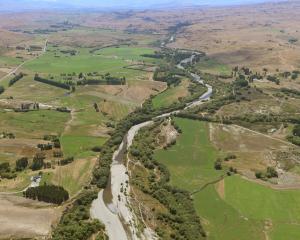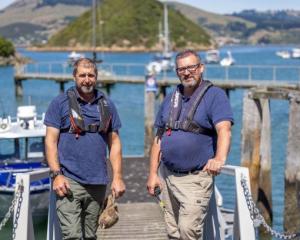Last year, the council amended its policies to allow it to invest in irrigation schemes subject to a range of conditions.
The request from Tarras Water Ltd for the council to invest $3.5 million in its scheme was the first considered by the council and it was declined this week.
At the council's meeting on Wednesday, Mr Woodhead said it highlighted the difficulties of matching the council's role as a public enterprise with irrigation schemes run by private businesses.
''They start down the track with expectations and do what they have to do to make it happen which doesn't fit with local government legislation.''
As a result, the council needed to think about its role in supporting irrigation schemes, he said.
It could mean the council choosing to continue its role as an ''active facilitator'' and assisting until the feasibility stage of schemes, then stepping back and ''letting them stand on their own financial footing''.
The council had chosen that method so far with the Manuherikia irrigation scheme which had just entered its post-feasibility stage.
Cr David Shepherd said the council's irrigation and environmental grant policies needed to be revisited to ensure they were ''fit for purpose'' and delivered the expectations of council.
Cr Gretchen Robertson said the council now needed to look forward to improving the flow in the Lindis River.
The capital support for irrigation schemes' policy had to beexamined as did the suggestion of the council taking up mining permits to assist the flow in the Lindis.
''We've learnt a lot. We have to be super cautious when holding public money and it's very necessary to go through a long process.''
At its meeting this week the council also agreed to pursue options for an environmental grant policy to assist with the Lindis Flow regime, including management through a community water management group.
Cr Michael Deaker said he looked forward to the positive outcome of that decision.
''I'm clinging on to the way forward not being in dry shareholding.''
Council chief executive Peter Bodeker said with the expiry of deemed permits on the horizon, the council and the local community needed solutions to address water allocation and environmental flow issues relating to the Lindis River. A catchment programme was operating in the Lindis so options for improving the minimum flows in the river could be identified, and provision made for landholders who depended on irrigation to be productive.
The council's recently introduced water plan change 1C, which provided for community water management groups to manage water allocation, was proving a successful model in other catchments. Staff would be working with the Lindis community to help set up a group to identify options to address local needs, he said.












